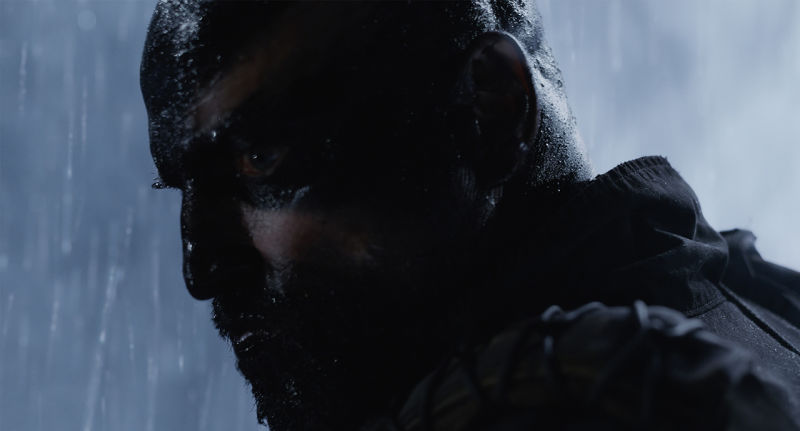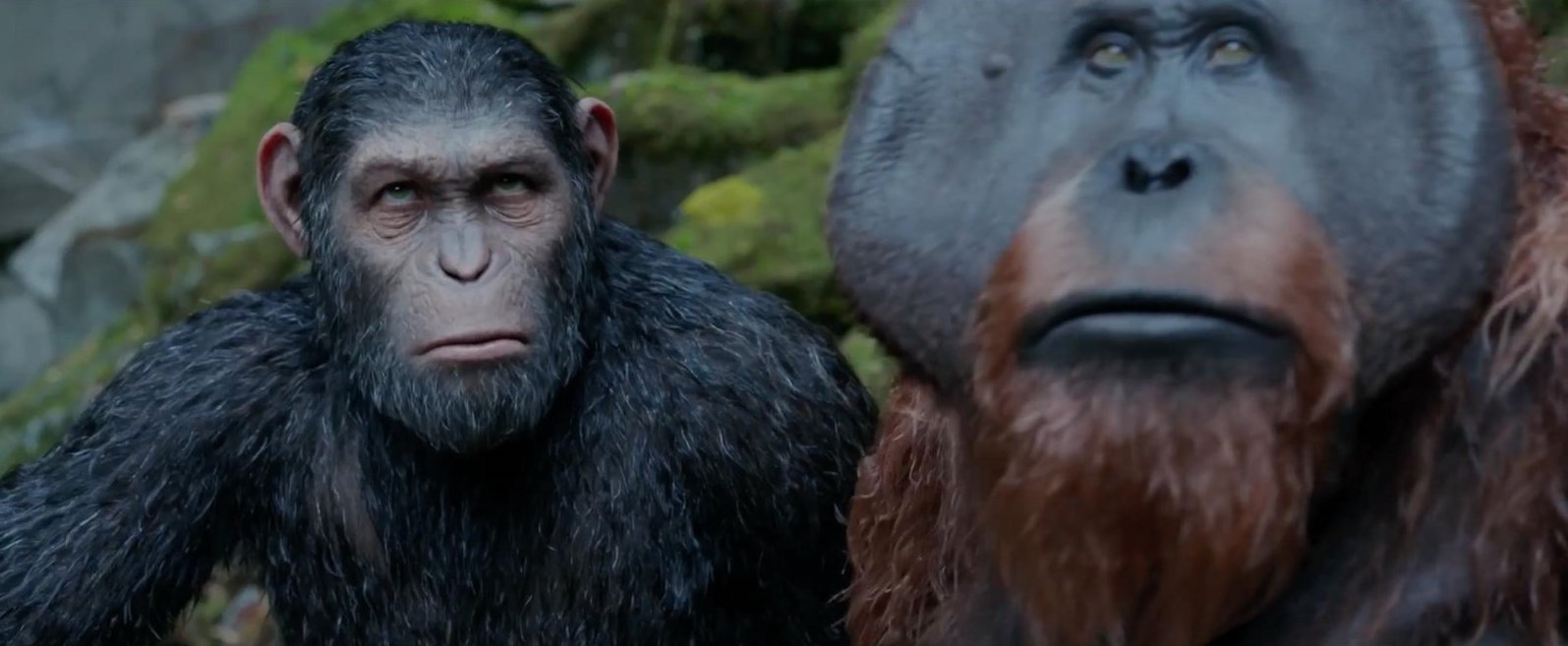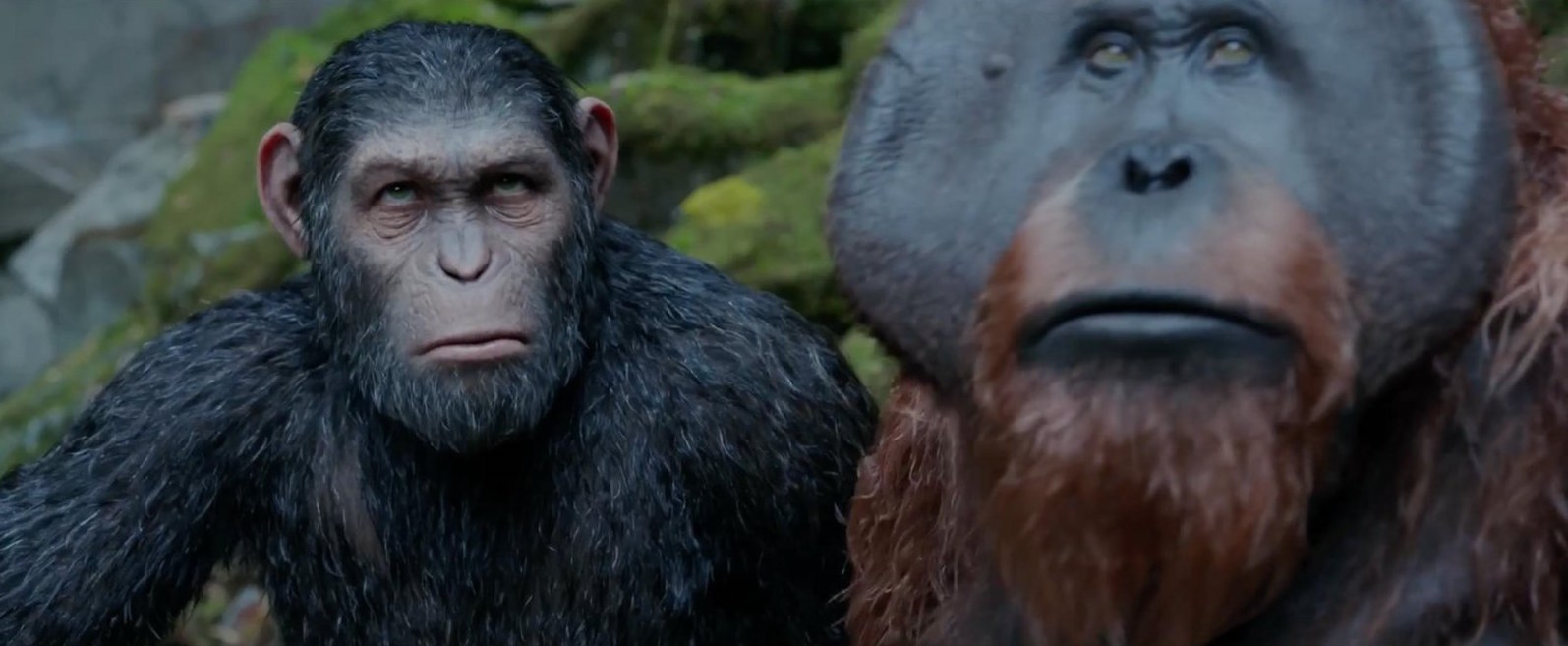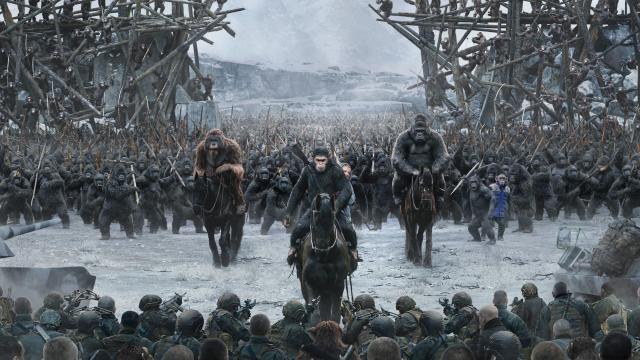War for the Planet of the Apes is a unique effects-driven winter blockbuster in that it has a very clear end to a major part of its story. There’s no cliffhanger or obvious sequel hook here. And yet there’s still more story of the apes to tell.
All images: 20th Century Fox

War for the Planet of the Apes doesn’t end with a big ape-versus-human fight. It doesn’t even end with Caesar (Andy Serkis) actually fulfilling the revenge quest he’s on for the whole movie. The Colonel (Woody Harrelson) killed Caesar’s family, imprisoned and enslaved the rest of his apes, and tortured Caesar personally. And yet, Caesar doesn’t kill the Colonel after going to hunt him down. Instead, the Colonel takes his own life, stricken with a disease that makes humans mute and less intelligent.
“It is a thing where you have the two leaders of two factions — the apes and the humans — and I really liked that number one on my [character’s] to-do list is eliminate [Caesar],” Harrelson told us. “But then, suddenly and begrudgingly, I admire him. I start to respect him. I like that part of it. It’s easy to do. He’s an easy guy to respect.”
Serkis agreed, explaining that the last scene between those two characters is about that respect. “I think the final conflict between the two — the antagonists and the protagonists, or whatever — isn’t a battle. It’s actually a ‘finding their empathy’ again. Or respect. Or understanding for each other.”
Serkis feels this was a bold choice on the part of the filmmakers. “To not have the Colonel and Caesar face off for a big fight, because that’s typically where you would think a movie like this would end,” he continued. “And it doesn’t. That final moment with Caesar and the Colonel, I think, really has its own power. And it’s a silent scene.”

Another fantastic scene that was nearly silent was the film’s very last scene, where Caesar leads the apes to freedom and dies of the injuries sustained in his escape. For a death scene, it’s remarkably subtle, with Caesar’s son Cornelius (Devyn Dalton) playing off in the distance, while only Maurice (Karin Konoval) is aware that Caesar is mortally wounded. A lot of the movie plays with the deconstruction and rebuilding of the myth of Caesar for the apes — he lets them down and saves them — and the final scene is Caesar telling Maurice that they will be fine without him. Maurice, who has not spoken many words up until this point, responds that Cornelius will know what his father did.
Until the two have their brief conversation, the scene is played in silence and it’s almost jarring that dialogue interrupts it. Originally there was going to be even less talking. “When Mark Baumbach and I wrote that scene, Caesar did speak, but Maurice didn’t,” director Matt Reeves told us. “And that was because Maurice barely spoke in the movie. And then as we were rehearsing, we weren’t quite getting it, because of the emotion was coming through from the difficulty of her articulating.”

Reeves explained that the impetus for the change was an idea built into the other two movies:
For me, it came from Andy playing that moment in Rise where he finally speaks. Where he goes, “NO!” And it was this idea that — at the time, when I watched that, my son was just learning how to speak. Because I started seeing this idea… of us as animals. I’d look at my son and think, “It’s this little animal…” and see the intelligence behind his eyes he had since he was born. He always knew what was going on, but he didn’t have the tools to articulate. And then basically, when he finally said something like, “no,” he’d been waiting over a year to say “No!” And when it came, it came with an emotional urgency.
So, this kind of became this rule in my head that the idea of speech came from a place of emotional urgency. That whenever they spoke, it was because they were moved to speak. It wasn’t enough to just sign it or to communicate it non-verbally, it needed to be given voice to. And so, that was like when Koba says, “HUMAN WORK?!” That’s finally when he was moved to speak because he’s so angry about what Caesar is saying. And that he starts pointing to his scars, and starts saying, “Human work! Human work!” It comes from an urgency of emotion.
So it felt like in this last scene, we couldn’t get at that emotional place that Maurice needs to get to unless she made the struggle to articulate. So that’s actually where the speech comes from. There may have been a version that could have been really beautiful like you’re saying, but I think the reason why we chose to do it that way was because as we were exploring, it felt like we were at the place where you could really feel what Maurice was going through was her struggle to articulate to him, really, her love for him. And that seemed to need speech. So that’s how it came about.
While Maurice’s dialogue was added, Serkis said that they did their best to pare the dialogue down to its absolute essentials. “In actual fact, it’s not like a big send off for Caesar. It’s very subtle. Most of the apes don’t even know it’s happened,” said Serkis. “It’s not like, the leader’s passing, or whatever, it’s a very quiet thing off to the side. And I think what was important is the relationship between Maurice and Caesar, which has gone all the way through the three films as his conscious and guide and consul, it seemed like that was the right character to end Caesar with.”

Reeves told us that the death of Caesar could be the beginning of a religion based in his legend. “As the population changes, I imagine the legend will change,” he said. “And there will be interpretations of the legend, and there will be the Orthodox people who’ll be certain about what the legend is, and then there’ll be sort of the more Progressives, and then that’s sort of the whole idea.”
And that means that the future of the apes depends on Maurice. “In our minds, I think Maurice was also sort of going to become, like, the ‘Lawgiver’. And so, in any case, it will certainly be on Maurice’s shoulders to carry that legend forward, to begin with. And then how that changes, and how that story gets passed from hand to hand… I mean, it’s like a game of ‘telephone’. A message changes by the time it gets to the end of the line.”
There are still plenty of avenues open for future Apes movies to explore, even if Ceasar’s specific story is over. “In our minds, the story is not over. The story definitely continues,” said Reeves. “But that aspect of seeing this epic arc was really what we wanted to complete. We weren’t like, ‘Hey! Here’s the secret!’ and then, ‘Here’s the next five seconds of the next movie’ — we weren’t going to do that.”
